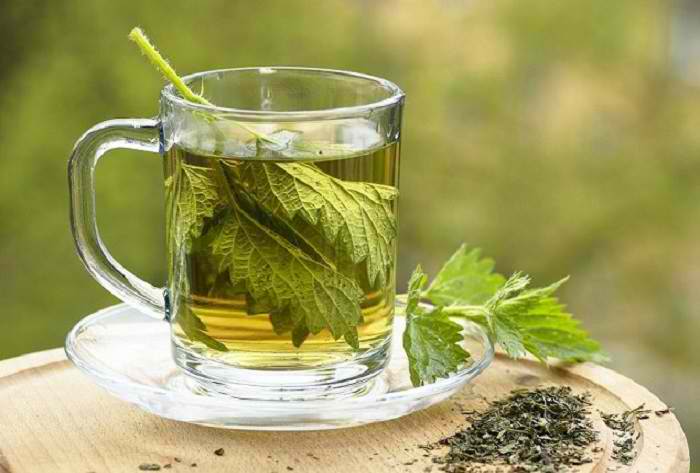There are many types of herbal teas, but there are only a very few with proven medicinal effects. One of such teas comes from the stinging nettle plant, a known medicinal herb which has been used for a wide variety of issues.
Stinging nettle plant was first discovered as a native shrub in chilly areas of Europe and Asia, but is now grown all around the world. The green shrub has fine hairs on its leaves and stems that release displeasing chemicals if you happen to touch them.
The herbal irritant has actually been a part of medicine for centuries now. The tea manufactured from stinging nettle has a wide variety of biologically active compounds with great health benefits.
Tea made from stinging nettle has been used to treat everything from asthma to fungal infections, from infections to halitosis. It is known for being a strong and flavorful beverage, and has a rapid set of health effects. It’s ironic how a plant that can inflict so much pain could be the very solution to deal with a problem.
And while a cure-all still doesn’t exist in the annals of medicine, this humble herb holds its own in terms of efficacy. There are several studies that have shown nettle to be great at preventing and curing various illnesses. Here are a few research-backed benefits of nettle tea:
Stinging Nettle Leaf Tea Benefits
1. Stinging nettle tea helps with benign prostatic hyperplasia
Nettle leaf tea is a conventional remedy for the treatment of benign prostatic hypertrophy, or BPH, in men. It provides considerable relief of BPH symptoms.
Benign prostatic hyperplasia, or BPH, is a type of benign prostate tumor that is very common in men. The main cause of the disease is still unknown. However, it has been found in an Iranian study that nettle is helpful in reducing the signs and symptoms of benign prostatic hyperplasia. Nettle has also been found to be a safe alternative, given its absence of side effects. Stinging nettle leaf tea also reduces the growth and development of prostate cancer.
Stinging nettle leaf tea can function as a diuretic for the body. This reduces blood pressure, as the systolic blood pressure lowers due to the intake of the herb.
Drinking stinging nettle leaf tea can also have huge impacts on the level of testosterone in men. Nettle leaf substantially boosts count, motility, and normal morphology of sperm cells.
The amount of testosterone that largely decreases due to high-intensity workout and the negative effects of nicotine can be replenished with stinging nettle leaf tea.
2. Stinging nettle tea has exceptional anti-inflammatory properties
Nettle extract is also a potentially powerful anti-inflammatory agent. Tests show that nettle can help with inflammatory issues like arthritis, without the cytotoxic (cell-killing) effects that other plant extracts can induce.
Specifically, the study cited that lipophilic extracts of nettle, or that which has been extracted through the use of oils, has been found to be the most effective. While this isn’t the same as the process used in brewing nettle tea, the study has also verified that water-based extracts have the same anti-inflammatory effect.
This anti-inflammatory property found in stinging nettle leaf tea reduces the pain and suffering that people experience with arthritis. By reducing inflammation in the body, it has been observed to help provide relief from osteoarthritic pain.
3. Stinging nettle tea has a high nutritional value
According to a 2016 study, nettle has exceptional nutritional benefits. Nettle extracts have been found to contain enough fiber, calories, and proteins to have a significant effect on the drinker’s health. On top of this nettle also has several bioactive compounds, including antioxidants.
It is medically proven to be a powerhouse source for vitamins and minerals improving immunity. Stinging nettle is known as “Nature’s Multivitamin”.
Nettle leaf contains many nutrients, such as Vitamins A and C, potassium, tannic acid, chlorophyll, silicic acid, phosphorus, lecithin, iron, lime, chlorine, potassium, sodium, and sulfur.
A substance called silica in stinging nettle leaf tea makes your hair and nails stronger and encourages blood circulation, therefore, reduces hair shedding.
Whereas for skincare, nettle leaf contains anti-inflammatory and pain-relieving effects for skin problems like rashes or eczema.
It goes without saying that once you effectively get rid of all the unwanted and stored metabolic waste in your muscle tissues and throughout the lymphatic system, it results to having your body functioning more productively.
And stinging nettle leaf tea’s cleansing properties help in speeding up this process, which in turn helps you shed that extra weight.
Nettle leaf also has a remarkable effect on the glucose levels of the body. It makes it possible for use in the treatment for type-2 diabetes, reducing interleukin 6 (IL-6) and amplified sensitive C – reactive protein (hs-CRP) in people suffering from diabetes.
4. Stinging nettle tea has antiviral and antifungal effects
A study that sought to outline the various beneficial effects of stinging nettle has also found that nettle extract has been found to have antifungal and antiviral effects. While further study is still warranted, the study has also found that the extract exhibits very little toxicity and risk of adverse effects.
Stinging nettle leaf tea is known for its healing ability due to the presence of lectin agglutinin.
The herbal agent has strong antifungal and mild antibacterial properties. And this proves the fact that nettle leaf has a huge amount of benefits to offer as a potent antibacterial.
5. Stinging nettle tea also has antiulcer effects
Aside from nettle’s helpfulness in cases of arthritis and prostate tumor, it also prevents the process of “ulcerogenesis” or the formation of tumors due to the formation of acetic acid in the digestive tract. Nettle has also been shown to have antibacterial effects, which together with the analgesic effects mentioned previously can do wonders to those prone to ulcers.
6. Stinging nettle tea has beneficial carotenoids
Carotenoids are substances with important benefits to the body, especially to the eyes. Carotenoids in the stinging nettle include beta carotene, lutein, and lycopene. The leaves of the nettle plant also contain linoleic acid.
7. Stinging nettle tea helps reduce oxidative stress
Nettle has been proven to have oxidative effects, and it has also been shown to help in the survival of cells in the brain. When paired with exercise, it has been shown to have a positive effect on the overall growth of nerves in the brain.
8. Stinging nettle tea helps seasonal allergies
A 2009 research has shown that nettle also helps reduce the signs of seasonal allergies by affecting the histamine receptors. This is linked to the anti-inflammatory effect of the plant. This makes nettle tea a good supplementation for those who suffer from various allergies, such as hay fever and allergic rhinitis.
Stinging nettle leaf tea is powerful in drastically reducing the itching and sneezing caused by hay fever, a condition that affects thousands of people around the world.
The symptoms that manifests when diagnosed with hay fever can be controlled with the use of nettle leaf tea.
Unlike other forms of treatment, nettle leaf tea has no possible side effects, such as seizures, dry mouth, and drowsiness, which makes it an ideal option for people prone to various allergies.
9. Stinging nettle tea contains a super-antigen
A study published at the journal of immunology has found that nettle contains an antigen, a substance that is capable of evoking immune system response. Antigens help strengthen the immune system, so the body can better protect itself against illnesses.
Nettle contains a type of lecithin that is considered to be a super-antigen — capable of increasing T-cells sixfold in a span of three days. T-cells are cells that can destroy invading pathogens in the body.
10. Stinging nettle tea can help cure certain parasitic issues
Being a known home-remedy, nettle has been found to be effective against a wide variety of illnesses, even some neglected ones. An example of the latter is cutaneous leishmaniasis, a type of parasitic disease that has a high mortality rate in developing tropical countries.
According to a study published only this January 2020, the aqueous extract of nettle (such as that in nettle tea) is also effective in combating this disease by interfering with the molecular activities of the parasite.
Preparing Nettle Tea
When harvesting raw nettle, be careful of its sting. It can deliver irritants to the skin. Soak the nettles in water first to remove the harmful chemicals. To prepare tea, the usual combination is one cup of leaves to two cups of water. You may have to experiment to get the best ratio for you in terms of concentration.
Boil the water first, and add the nettle leaves. Once added, bring the water down to medium heat and let the leaves steep for around five to seven minutes. If you want a stronger brew, you can let the leaves steep longer. To enhance the taste, you can add a spoonful of sugar or honey.
- READ MORE




